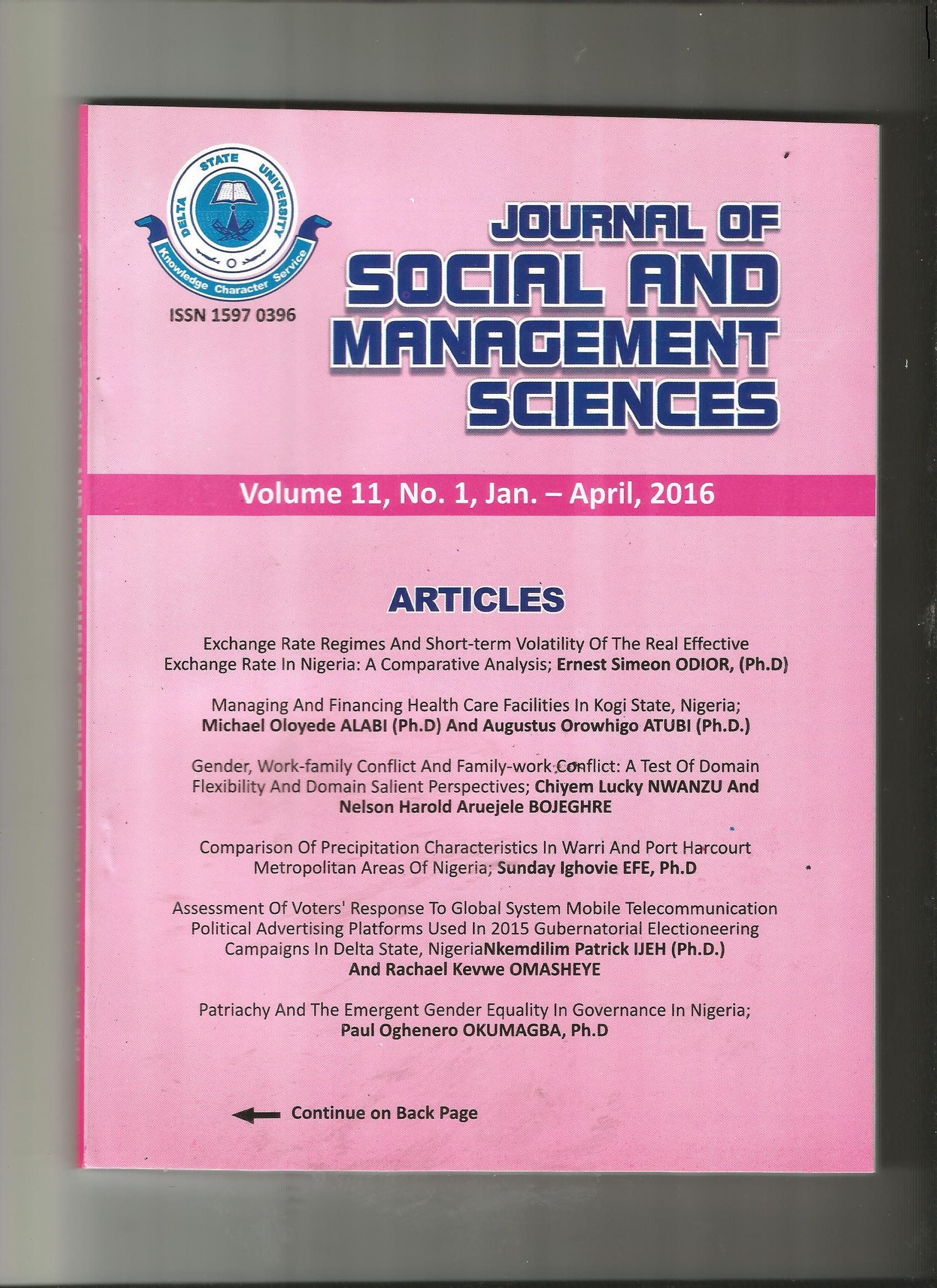
JOURNAL OF SOCIAL AND MANAGEMENT SCIENCES
Journal of the Faculty of Social Sciences, Delta State University, Abraka, Nigeria
ISSN: 1597-0396
DOI: 10.5987/UJ-JSMS
Email: jsms@universityjournals.org
GENDER, WORK-FAMILY CONFLICT AND FAMILY-WORK CONFLICT: A TEST OF DOMAIN FLEXIBILITY AND DOMAIN SALIENT PERSPECTIVES
DOI: 10.5987/UJ-JSMS.16.022.1 | Article Number: F9498D3 | Vol.11 (1) - April 2016
Authors: NWANZU Chiyem Lucky and BOJEGHRE Harold Aruejele Nelson
Keywords: Gender, Work-family conflict, Family-work conflict, Domain flexibility, Domain salient and Nigeria
Two related perspectivesare widely implicated in the relationship gender has with work-family conflict (WFC) and family-work conflict (FWC). Domain flexibility perspective assumes that work responsibilities is less flexible than family responsibilities, therefore WFC would be higher than FWC for both sexes. Domain salient perspective assumes that work is more salient to males, while family is more salient to females, therefore WFC will be higher among males than among females, while FWC will be higher among females than among males. This study is an empirical test of the two perspectives. Three hundred and sixteen participants were drawn from public sector and private-owned organizations in Delta State, Nigeria. The participants comprised 144 males and 172 females, with age mean of 38 years and 8.88 standard deviation. Design of the study was cross-sectional and data were collected through self-report questionnaire. Data analysis supported domain flexibility perspective (for males, t(143) = 8.47, p < 0.05; for females, t(171) = 8.93, p <0.05) and disconfirmed domain salient perspective (for WFC, t(314) = -.15, p> 0.05; for FWC, t(314)=-.54, p>0.05). As conclusion, work interferes more with family responsibilities than family does with work responsibilities, and males and females suffer similar levels of WFC and FWC. To reduce WFC, work should be made more flexible with work design such as flexible work hours and telecommuting.
